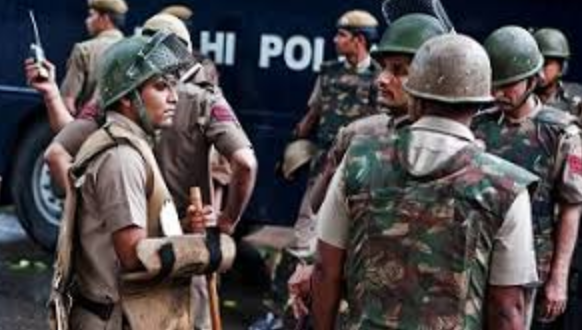The scandalous chain of events following the Ambani security incident has exposed the long-established nexus in Maharashtra between politicians, bureaucrats, police and criminals
The scandalous chain of events in Maharashtra, that started with the placing of a Scorpio car carrying gelatin sticks in front of Mukesh Ambani’s mansion in Mumbai and continued with the deposed police commissioner’s explosive allegations against the state home minister, is taking strange twists and turns.
To buy our online courses: Click Here
The Supreme Court, while disposing of the petition of the former commissioner of police, Param Bir Singh, conceded that “the matter is quite serious and affects the administration at large” but directed that the petition be preferred under Article 226 of the Constitution before the Bombay High Court as the powers thereunder are wider. Referring to its own judgment in the Prakash Singh case, the court observed that it was “only a mantra recited periodically, wherever the occasion so suits, and there has been no seriousness by all concerned to ever implement the directions enshrined in the judgment”. And now, the Bombay High Court has pulled up Param Bir Singh for not filing an FIR against the home minister. The state government has, meanwhile, ordered a judicial inquiry.
Read More: Why is Pakistan lifting its ban on Indian imports?
The directions of the Supreme Court and the Bombay High Court are unexceptionable. The honourable judges, however, forgot that when existing institutions fail to deliver, the common man looks up to the judiciary to address a situation. Here, the state government was, in all likelihood, the principal beneficiary of the extortion racket. The bureaucracy was complicit and the police was in the dock. It was an extraordinary situation where an intervention by the Supreme Court was perhaps called for and would have been welcomed by the people of the country. With due respect, a great opportunity was missed.
As things are, what would be the upshot? The prime movers in the nexus would get away. Lesser mortals would be held accountable and punished. People will, out of a feeling of helplessness, gradually forget the incident. Life would move on — until the country is jolted again by a similar scandal.
It may not be out of place to record that the unsavory incidents which happened in Mumbai were building up over a period of about 25 years. The petition for police reforms was filed in the Supreme Court in 1996. Soon after, the government of Maharashtra filed an affidavit on November 2, 1996, stating that none of the recommendations was feasible or acceptable. The constitution of the State Security Commission, it said, would be “inconsistent with the spirit of the Constitution of India”. The Supreme Court, notwithstanding opposition from several states, gave its historic judgment on September 22, 2006. The government of Maharashtra again filed an affidavit on January 9, 2007, stating that there were “compelling legal and practical reasons why the implementation of the directions is not feasible”. Subsequently, in 2014, it passed the Maharashtra Police (Amendment and Continuance) Act, which was not in consonance with the letter and spirit of the Court’s directions.
On March 9, 2014, in Aamir Khan’s TV programme, Satyamev Jayate, Sanjay Pandey, a senior officer of Maharashtra Police, clearly said that there was organised corruption in the police where money was taken on a regular basis from restaurants, liquor shops and dance bars, and the same was shared by the police hierarchy and the politicians. The extortion racket has thus been there in Mumbai for quite some time.
In 2020, Rashmi Shukla, Commissioner Intelligence, reported to the DGP about a network of politically connected brokers who were taking bribes for manipulating lucrative assignments for officers, but no action was taken. The truth was much too inconvenient to be probed.
So, the picture that emerges — well before Param Bir Singh’s letter bomb — is that we have a state government which does not believe in police reforms, that the state has had home ministers interfering in the day-to-day functioning of police, that the bureaucracy has been complicit in the unholy transactions, that prestigious police posting was available for a price, and that there has been organised corruption in the department. All the ingredients for an explosion were already there. Not that similar malpractices are not taking place in other states. The overall picture is the same, only the shades are different.
Certain inferences could be drawn even today. One, Sachin Waze could not have been acting on his own in placing the Scorpio with explosives in front of Mukesh Ambani’s residence. He would have done this with the knowledge and approval of his senior officers whose plan, in turn, would have been approved by the political bosses. What that plan was is still a mystery. Two, the MVA government and commissioner of police got along famously and there may have been a quid pro quo — until the commissioner was thrown out. Three, the extortion racket was arguably running with the knowledge of the coalition government; their defence of the state home minister is altogether unconvincing.
What is the way ahead? A crisis can be converted into an opportunity. It is high time that the unholy nexus between the politicians, bureaucrats, police and criminals is broken, that we debar persons of criminal background from entering the assemblies and parliament, that we restructure our police, giving it functional autonomy, and build a robust criminal justice system. The stakes are very high. The democratic structure of the country itself may be hurt if we do not bring about systemic changes.




